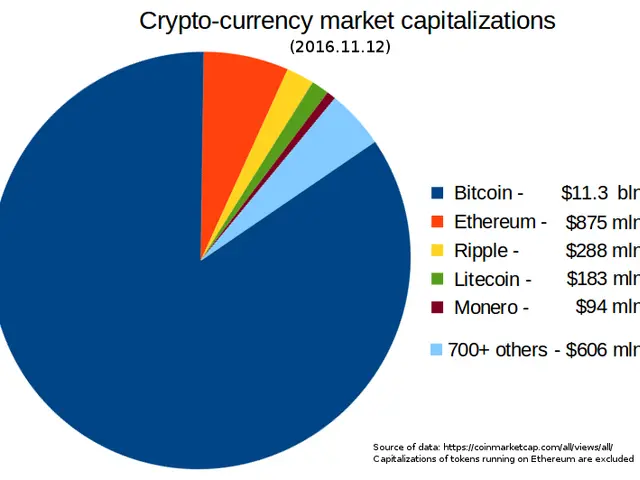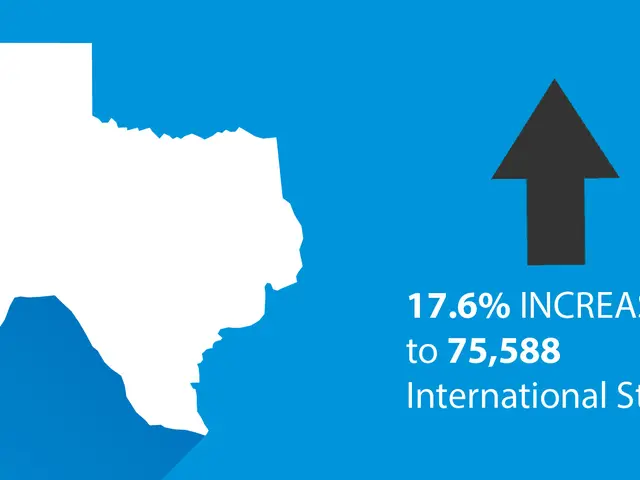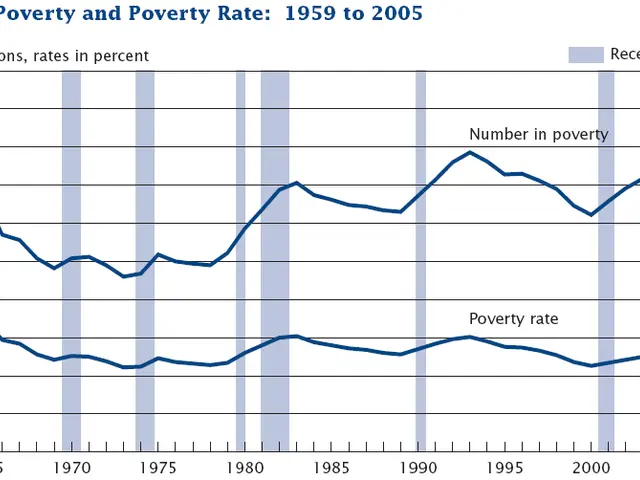Since the U.S. election, the S&P 500 has seen a bullish trend, but Nvidia has encountered challenges. Could this indicate that the stock has reached its zenith?
The U.S. presidential election has served as a positive trigger for the stock market, leading to a 5% rise in the S&P 500 since November 5, up until Monday. However, one company that hasn't been faring well in this context is Nvidia (-2.33%), which has actually seen a decrease of over 6%.
This contrasts with Nvidia's recent reputation as a top growth stock, particularly in recent years. But could this recent downturn suggest that Nvidia has finally reached its zenith?
A stellar earnings report might not be enough to sway skeptical investors anymore
Nvidia's impressive earnings report last month, which exceeded expectations, and failure to see a subsequent stock surge might indicate that the hot AI stock might not be as easy to propel forward. In October, Nvidia's sales reached nearly $35 billion, and the company's net income surpassed $19 billion at an astounding 55% of its revenue. It managed to beat expectations due to the robust demand for AI.
But when a stock already boasts a $3 trillion market cap and trades at more than 50 times its trailing earnings, expectations are already high. Despite Nvidia's relatively modest decline in the past month, it still ranks among the top three most valuable companies globally (Microsoft and Apple being the others). In essence, Nvidia is considered a "stock priced to perfection." For it to experience significant growth in value, it would need to surpass even Microsoft and Apple to become the most highly valued stock.
Has Nvidia's stock reached its limit?
Nvidia's stock breached the $150 mark on November 21 but has yet to replicate this performance. I strongly suspect that there may be resistance not only at this level but at any maximum market cap, with Apple currently leading at around $3.8 trillion. For Nvidia to convince investors that it deserves to be the most valuable stock, and continue to grow in value, it may require significantly more than it has been doing.
However, there are growing concerns among investors regarding potential risks on the horizon that could hinder Nvidia's future growth prospects.
More tech companies are developing custom AI chips, which could potentially diminish Nvidia's market share. China launched an antitrust investigation to investigate if Nvidia violated anti-monopoly laws. Moreover, there's also the possibility that AI spending could slow down in the near future. For a stock that is "priced to perfection," such cracks could potentially tarnish Nvidia's pristine image.
Is Nvidia still a good investment?
Purchasing and holding Nvidia stock for the long term still presents a convincing bullish case. The company remains a leader in the AI chip market, with robust demand not only for its chips but also for data centers.
But investors ought to prepare themselves for further resistance in the stock price, considering the high valuation, and the possibility of a market slowdown. While it's tempting to believe that sales will continue soaring and AI demand will only climb higher, there's a chance that tech companies might pause or reduce their spending, especially if economic conditions deteriorate in the near future. If this happens, Nvidia's stock might become vulnerable to correction.
Though I think Nvidia's stock has reached its maximum in the short term, this does not necessarily mean that it's a poor investment for the long haul. Investors just need to be prepared for more headwinds and stock declines in the upcoming months, as this overexuberant stock market might be due for a correction, and Nvidia is no exception.
Given the current market conditions and Nvidia's high valuation, investors might want to consider diversifying their portfolios by exploring other potential investment opportunities in the finance sector. This diversification strategy could help mitigate potential risks associated with Nvidia's stock, as multiple investments can offer a balanced return.
However, it's worth noting that while Nvidia's stock might be currently overvalued, its dominant position in the AI chip market and robust demand for its products suggest that it still holds long-term investment potential. Prospective investors who can view Nvidia as a long-term growth opportunity might consider investing in the company, with a careful understanding of the market risks and potential growth prospects.








